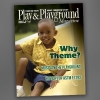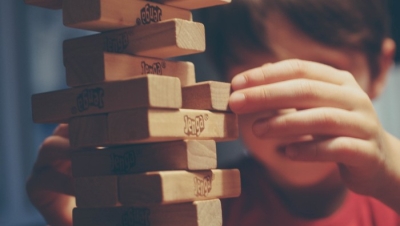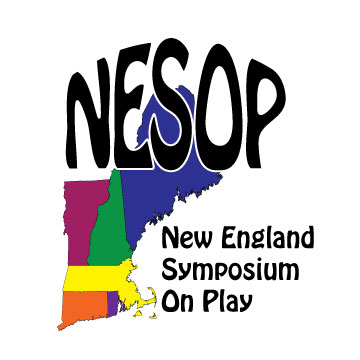How play can make a difference
“The marginalized child in my classroom is a snob,” reports Ms. Jones, a third-grade teacher. “No one wants to be around her. She’s rude and uncaring. I know the school counselor said she was a lonely child, but, my goodness, she deserves to be. She’s not only snobby and mean to her classmates; she even treats me that way!”
“That’s different from the child in my program,” remarks Mr. Jamieson, the after-school daycare supervisor. “His mother said he was lonely, but this child doesn’t recognize social cues. The other children would like him to play with them, but he ignores them. If they pursue him, he becomes combative and a fight ensues.”
“In my program, I have a child who only likes to play with children younger than she is,” adds Ms. Clark, another after-school daycare supervisor. “The counselor described her as a lonely child, too.”
These scenarios may sound familiar to those who work with school-age children. However, it may be difficult to believe that each of these children has a problem with loneliness.
“Current research indicates that problems with loneliness may not always be the fault of the child,” reports Sylvia Rimm, Ph.D., and director of the Family Achievement Center at MetroHealth Medical Center in Cleveland, OH. Rimm suggests that family values play an intricate role in how children interact with one another. She states that when children who are reared in families that embrace positive values find themselves in social milieus where these values are lacking, they have a difficult time. By not compromising their value system, they often segregate themselves, which results in feelings of isolation and loneliness. “These children experience loneliness because their good family values do not match the poor values of their peer group,” asserts Rimm.
She continues, “Another reason children feel lonely is because they have interests that are different from their peer group. It might be that they are children who are gifted and/or are children who think in unique or unusual ways.”
Rimm, in her website www.familyfun.com, points out several other motives children use to ostracize peers. These include jealousy, bad behavior, particularly when it is threatening, and appearance (e.g. obesity, braces, acne, athletic ability and clothing attire).
In further exploring Rimm’s ideas, it is reasonable to look deeper into the home lives of children who are lonely. For instance, the child who is described as snobbish may be a child whose parents teach that they are superior to others. This may be due to economic status, ethnicity or intelligence. These children learn hatred at an early age, and in structured settings where their discrimination against others has limited opportunity to be expressed, sarcasm, snippy comments and elitist behaviors are commonly used to get their message across.
Unfortunately, many of these children feel that, where social situations are concerned, they are on the outside looking in. They wish they could find ways to be loved and accepted by both parents and peers.
Those who care for these children can help them best by setting clear expectations about how others are to be treated and by giving the child numerous opportunities for supervised interactions with others.
In some cases, speaking with the parents and getting them involved in program activities may be helpful, since it gives them a chance to experience firsthand their child’s environment.
Unlike the snobbish child who recognizes social cues and uses them detrimentally, there are other children who seem oblivious to them. Without further investigation, it is hard to know if they wish to be part of their peer group or not. As Rimm mentions, there are children who process information differently or have different interests.
Those working with children benefit from knowing there exists a population of children suffering from various forms of pervasive developmental disorder (PDD). The most common of these is Asperger’s Syndrome, a form of autism, which generally affects boys. However, PDD crosses gender lines, and neuroscientists caution those working with children to be aware that the disconnect between the brain’s abilities to comprehend academic information and its abilities to process social information may be subtle. So subtle, in fact, that in some cases the disorder goes unrecognized.
Having the help of professionals who specialize in educational and social programming for these children is an asset. Equine and pet therapy are two other avenues that are proving to be good bridges for these children to employ to link to others. Inviting the child to participate in non-competitive, non-intensive group activities is a plus since competition often triggers bursts of anger and disinterest. Mentoring and consistent positive reinforcement help the child realize that playing with others can be a positive experience.
There exists yet another group of children who appear lonely. These are children with immaturity. Often seen playing with children younger than they, these children appear academically and emotionally sound. Teachers and staff question why they don’t play with children their own age.
Psychologists tell us that children age in three ways: chronologically, socially and intellectually. Many children born prematurely or born between July and December are placed in classes early because they are intellectually ready to learn. However, some of these children may lag behind in social maturity. Participating in the social milieu is difficult because their brains have not yet developed to the stage where they can adequately process the various social situations that present themselves. Consequently, they are happier and more at ease playing with their socially appropriate age group. Patience on the part of the parents and child care staff is the best tack. These children usually catch up. In those cases where this does not happen, putting the child in a program with younger children or retaining them a year may be appropriate. Child therapy is another helpful addendum. Competent child therapists evaluate these children, communicate with the parents and school, and help the child explore ways to be socially successful.
Lastly, language barriers may be a cause of true loneliness in children. A former preschool teacher turned marriage and family therapist, Frances Bledsoe confided that the ethnic mix of her classes was so diverse that few of the children could communicate with each other. Comprised mostly of newly arrived immigrants, Bledsoe faced her challenge by using music as the universal language. Singing together, learning songs in different languages, and putting gestures with the songs helped the children to understand each others’ histories and vocabularies. Bledsoe found keeping a consistent classroom structure and making up songs herself, which children acted out, was a way to demonstrate expectations of various classroom tasks. “It didn’t take long before the children began laughing and playing together and following my instructions,” Bledsoe said with a smile of satisfaction.

















Add new comment